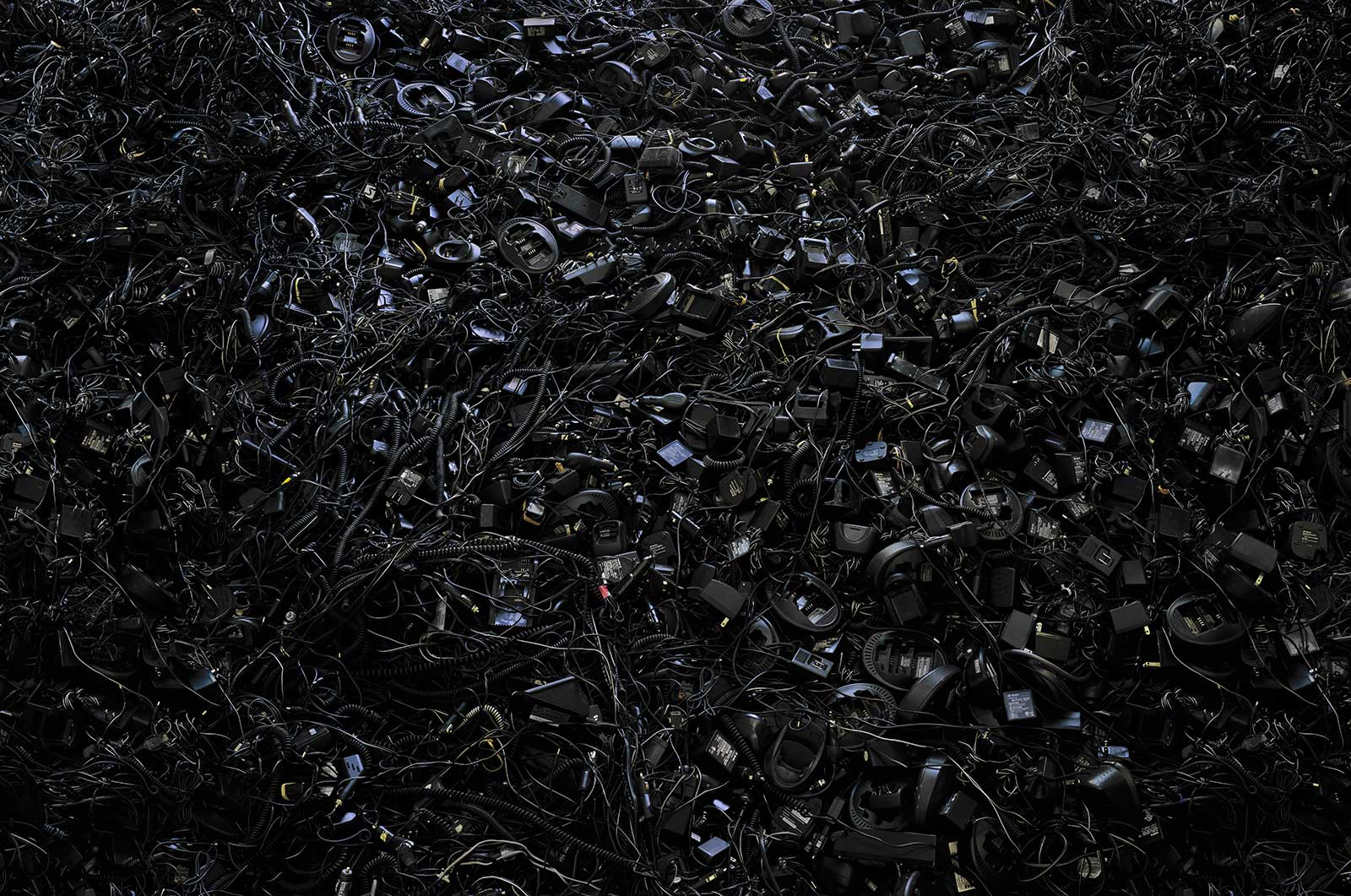
Cell phone chargers, Atlanta, 2004
Chris Jordan, 2004, archival inkjet print, 44″ x 66″, © 2004, courtesy of the artist
Chris Jordan
With his powerful images of mass consumption, Chris Jordan issues a clear directive to mankind: it is time to sweat the small stuff. In isolation, individual purchases of electronics, single-serving foods, and plastic amenities do not trigger visions of an environmental emergency. But as the human population approaches eight billion, the amplification of every small act of consumption translates into the rapid and pervasive degradation of the natural world. In a body of work entitled “Intolerable Beauty: Portraits of American Mass Consumption,” Jordan visited landfills and recycling centers to photograph vast piles of discarded products such as cell phones, chargers, circuit boards, crushed cars, glass bottles and other consumer goods. Jordan transformed these billowing piles into seductive abstractions, whose beauty is at odds with the reality that discarded items consume resources in the recycling process and propel a stream of residual waste into landfills, wastewater plants and the atmosphere. In a related body of work entitled “Running the Numbers,” Jordan translates consumption and waste statistics into composited images that visually connect the data to its environmental impact. While these works highlight the scale of consumer waste production, it is the haunting images of Jordan’s “Midway” and “Camel Gastrolith” projects that draw our attention to the innocent victims of our excess. We see the carcass of a baby albatross, its gut filled with plastic caps, lighters and other lethal plastic objects. We see the stomach contents of a dead camel, comprised of over 500 plastic bags, along with plastic, glass and metal debris. Throughout his work, Jordan reveals the harrowing consequences of our daily choices and the urgent need to make a change.
Explore the Gallery





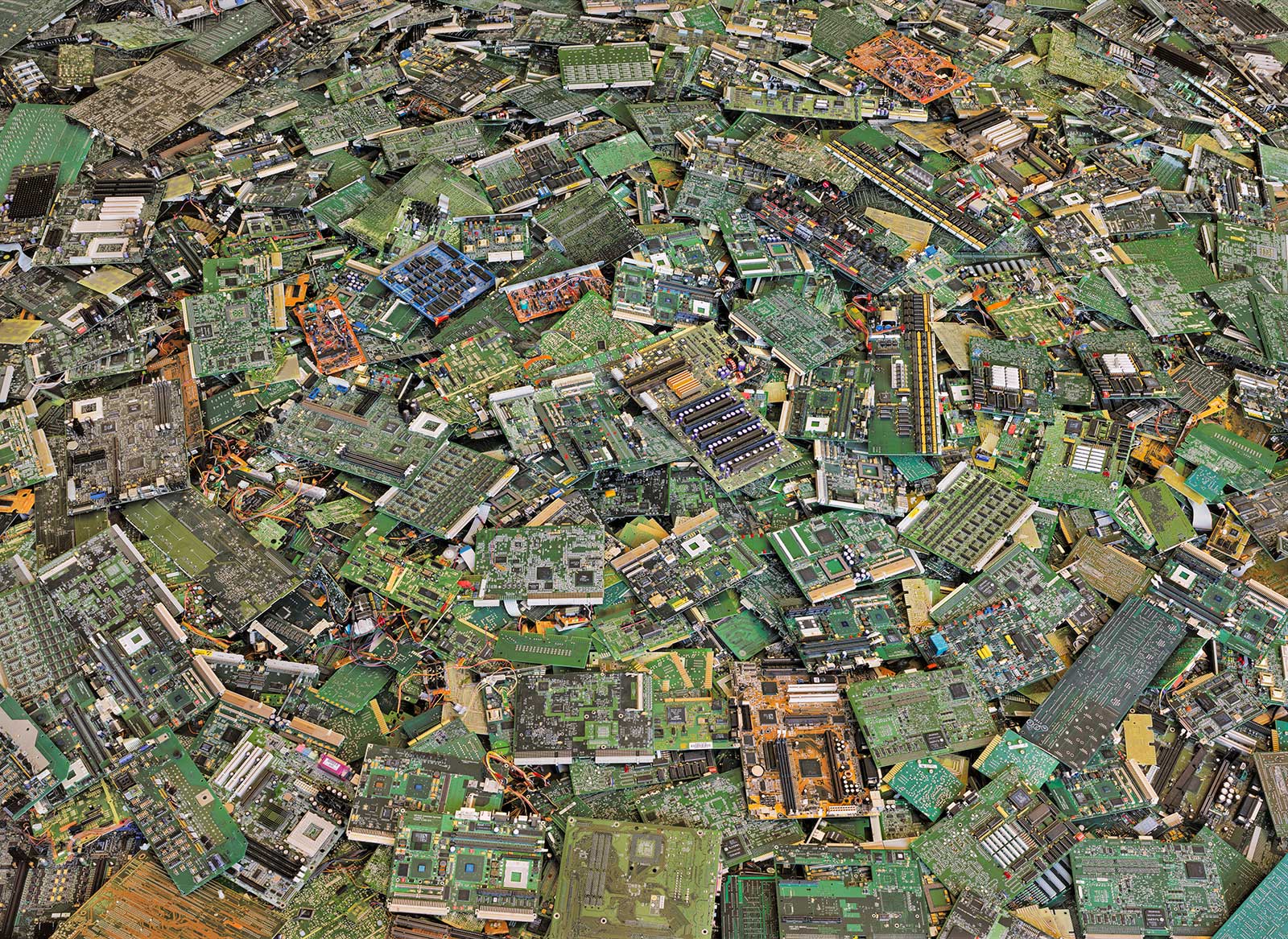
Circuit boards #2, New Orleans, 2005
Chris Jordan, 2005, archival inkjet print, 44″ x 57″, © 2005, courtesy of the artist
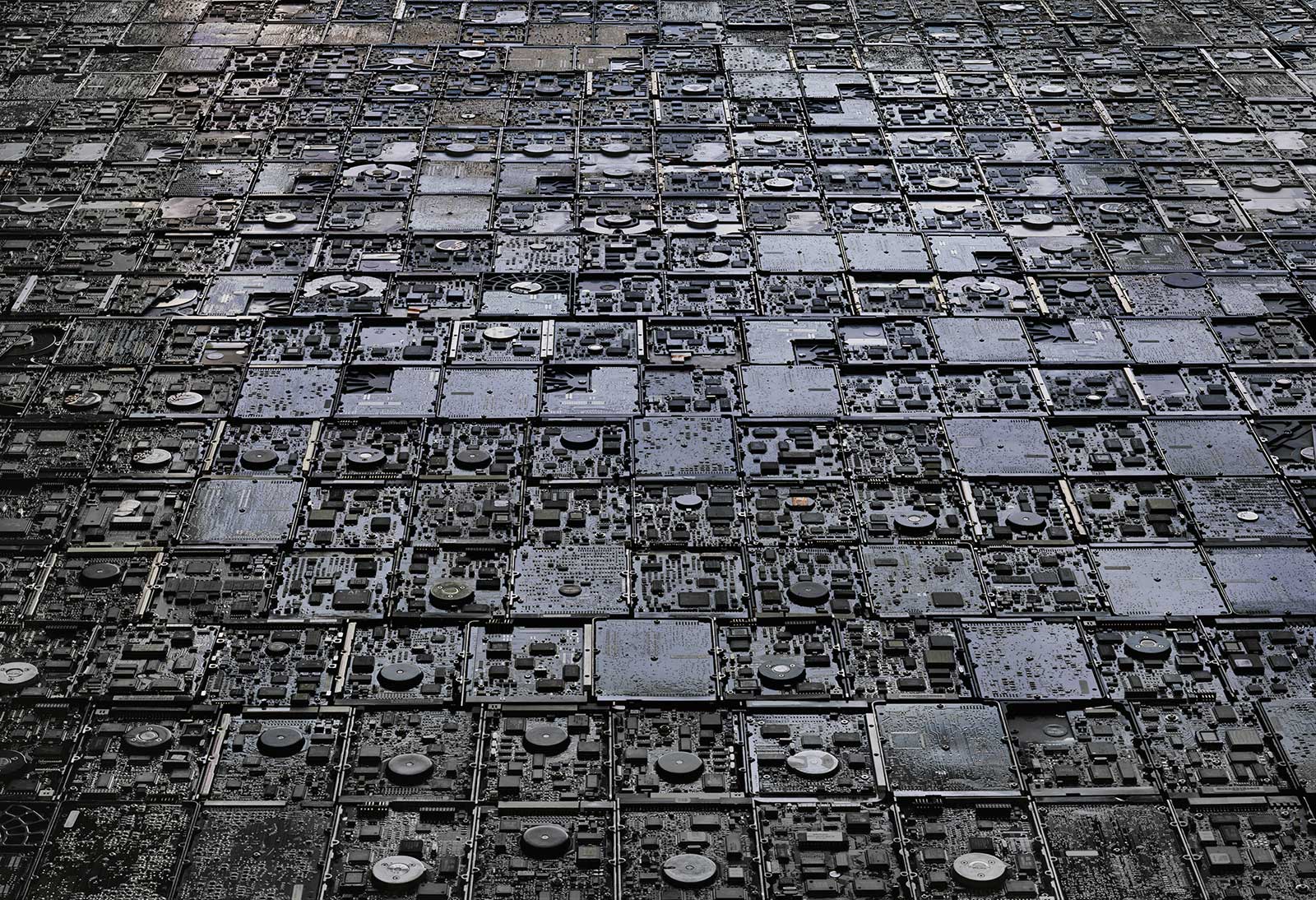
Circuit boards, Atlanta, 2004
Chris Jordan, 2004, archival inkjet print, 44″ x 64″, © 2005, courtesy of the artist
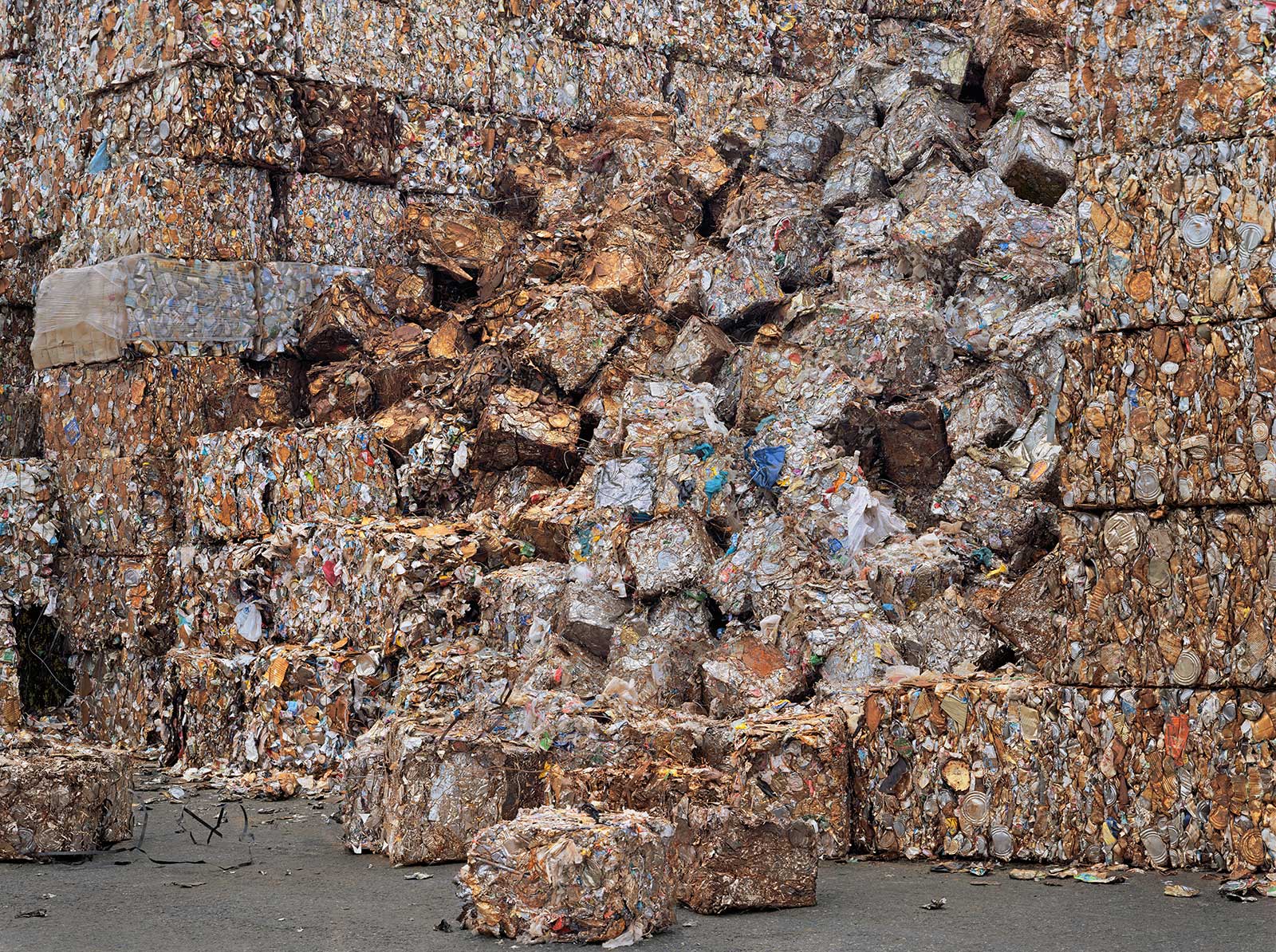
Recycling Yard #6, Seattle, 2004
Chris Jordan, 2004, archival inkjet print, 44″ x 59″, © 2004, courtesy of the artist
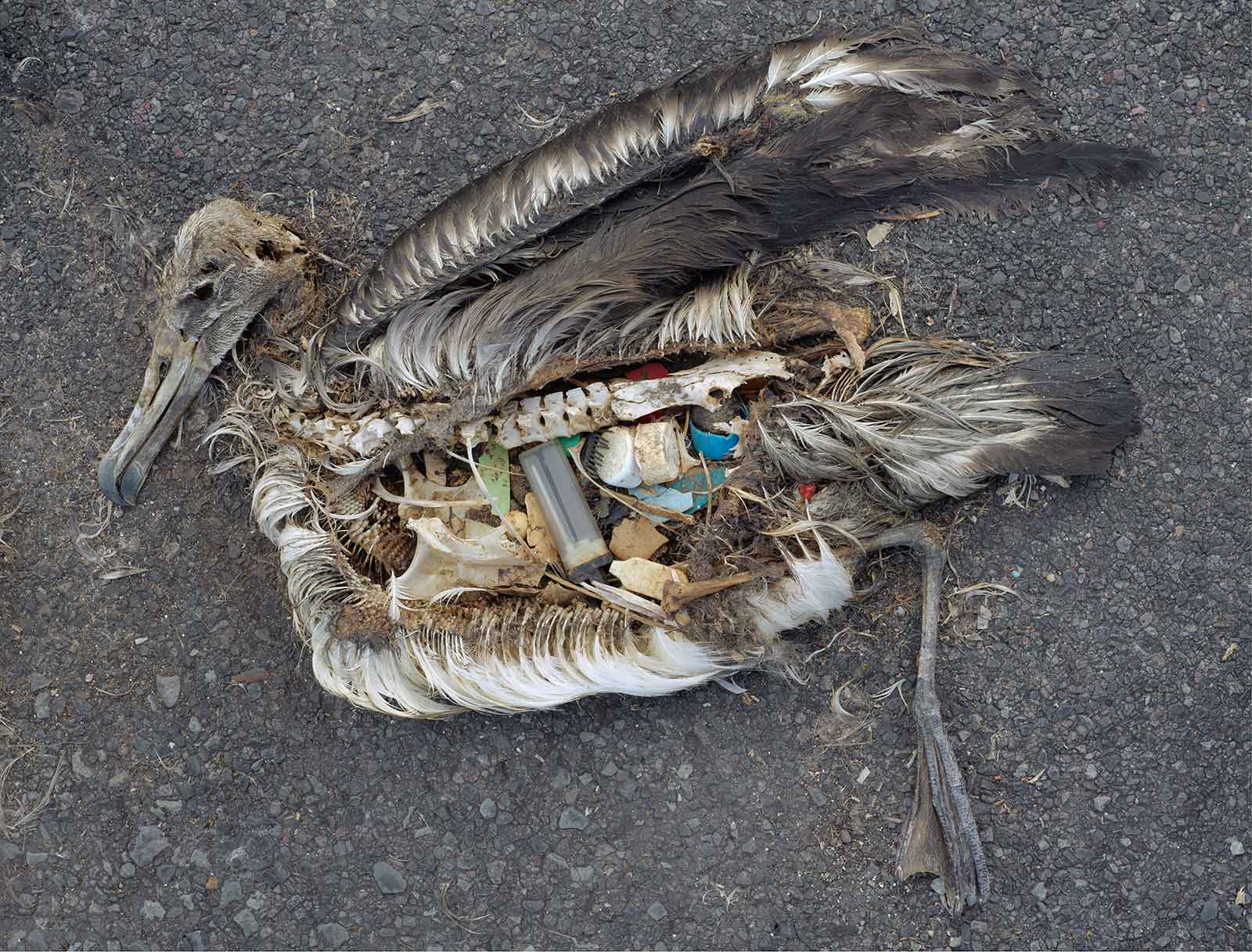
CF000313: Unaltered stomach contents of a Laysan albatross fledgling, Midway Island, 2009
Chris Jordan, 2009, archival inkjet print, 26″ x 32″, © 2009, courtesy of the artist
Camel Gastrolith
Chris Jordan, 2016, high-resolution video, © 2016, courtesy of the artist, video: Ian Gilman
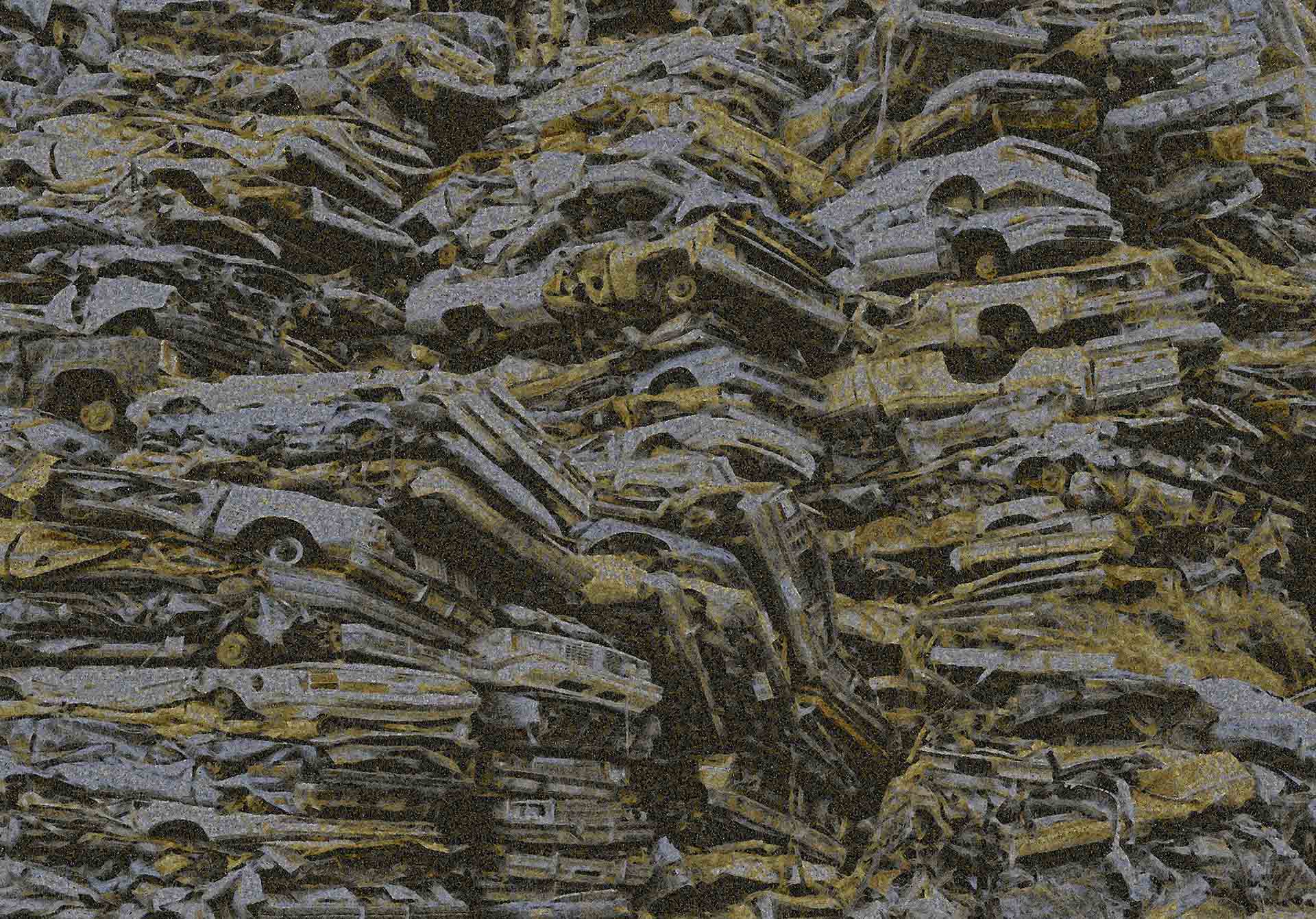
Car Keys, 2011
Chris Jordan, 2011, archival inkjet print, 60″ x 86″, © 2011, courtesy of the artist
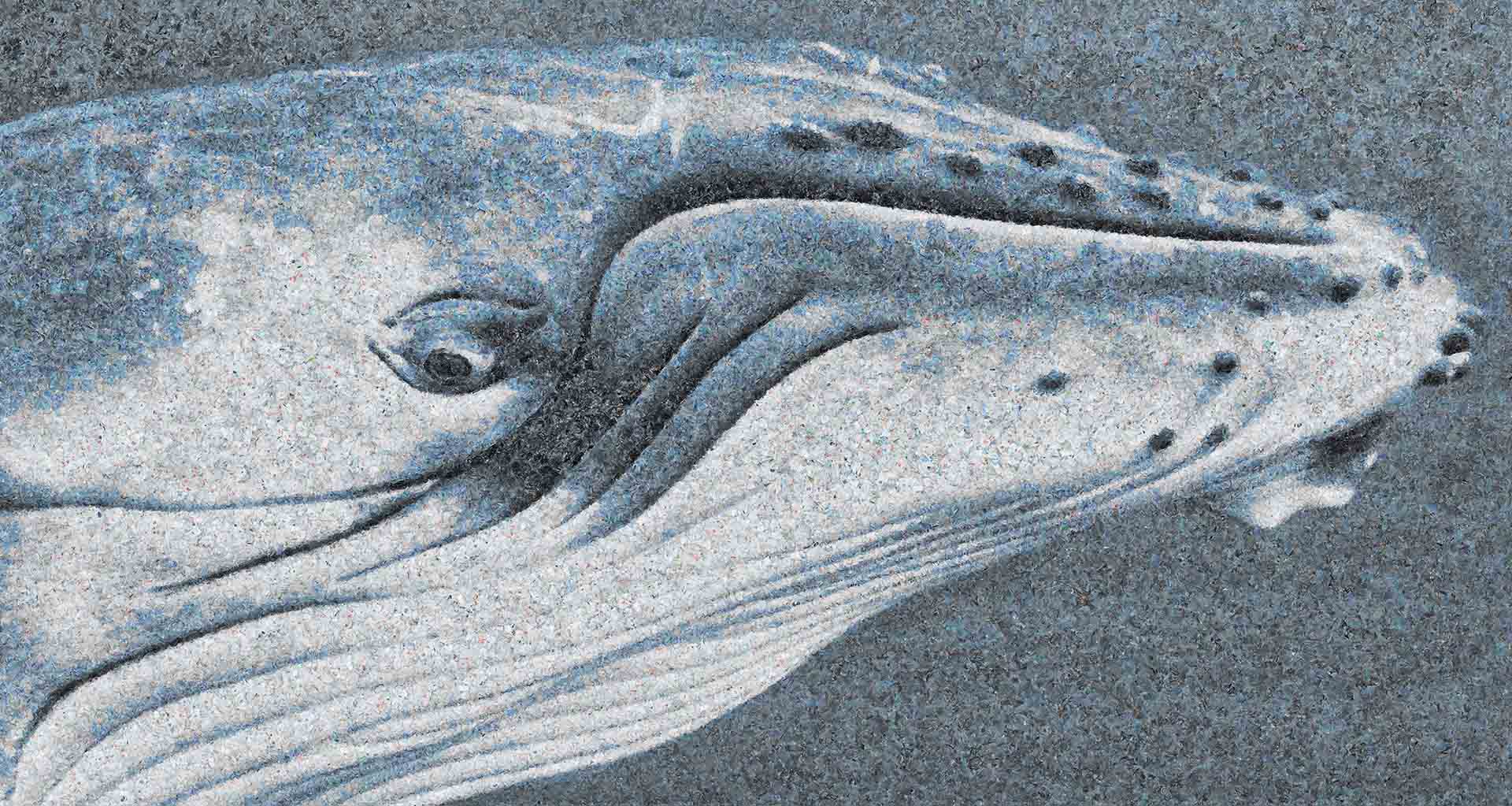
Whale, 2011 (based on a photograph by Bryant Austin)
Chris Jordan, 2011, archival inkjet print, 44″ x 82″, © 2011, courtesy of the artist
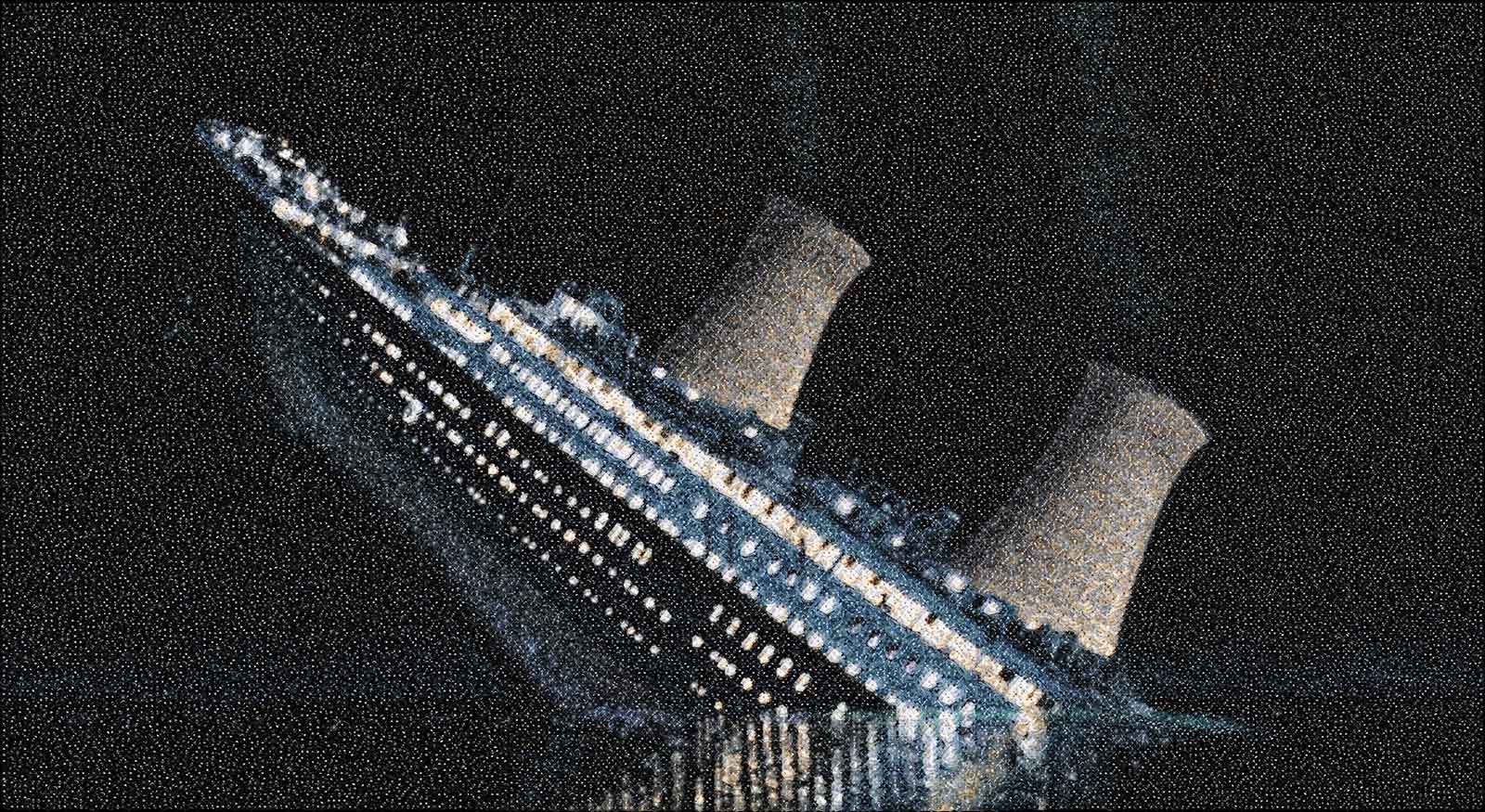
Unsinkable, 2013
Chris Jordan, 2013, archival inkjet print, 60″ x 107″, © 2013, courtesy of the artist





